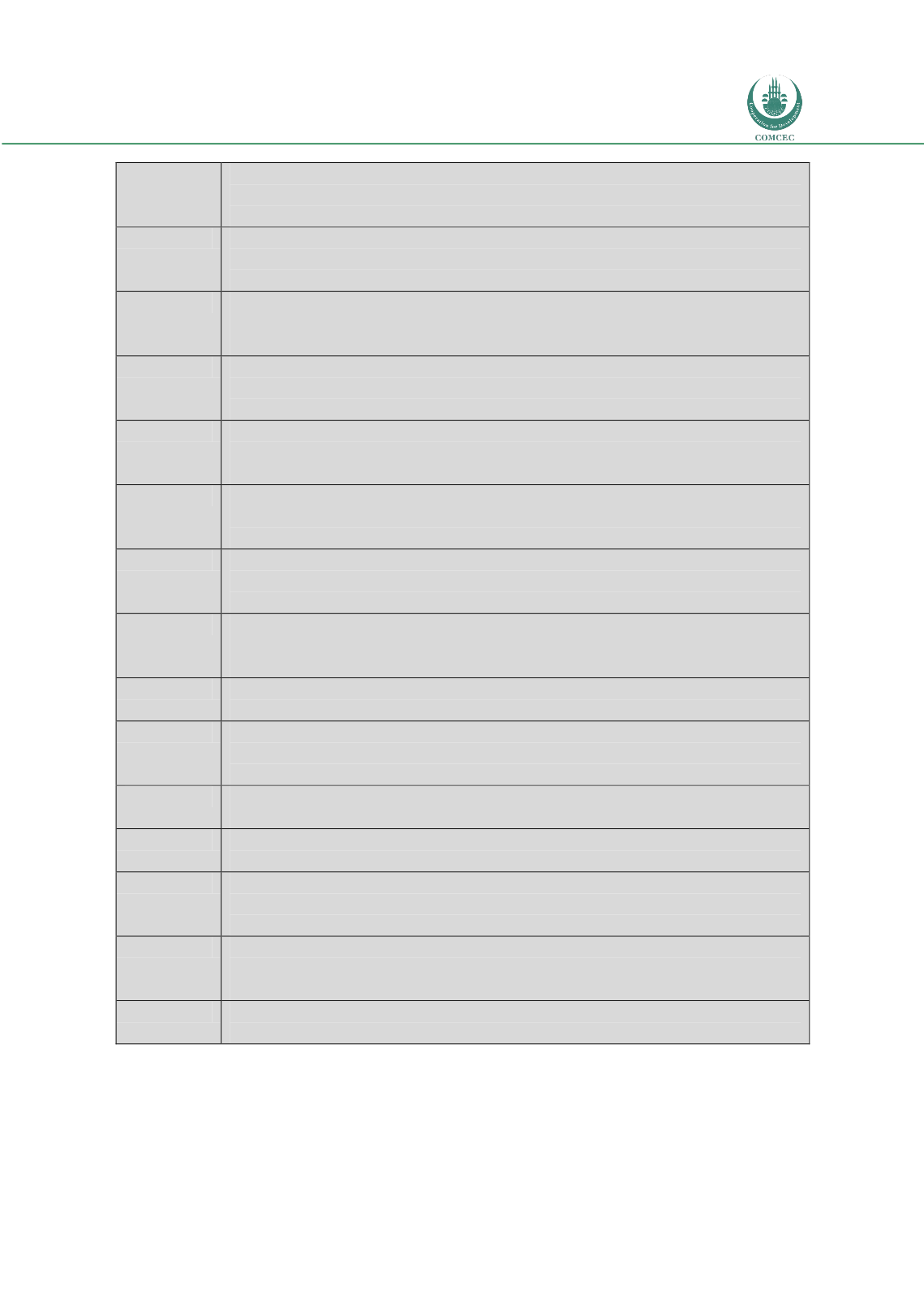

Risk Management in
Islamic Financial Instruments
59
♦
central bank is in the midst of developing a new regulatory frameworks for the financial industry
♦
has an agreement with Bank of Tanzania for supervision of banks
♦
information on Islamic banking
or banking system was not reported.
Djibouti
Central Bank of Djibouti is the primary regulator
♦
dual banking system in operation
♦
issued separate
law on the establishment of Islamic banking
♦
has separate law for monitoring various banking risks
♦
maintains the Basel standards for calculating minimum capital requirements
Egypt
The economy is monitored by the Central Bank of Egypt
♦
both on-site and off-site supervision systems
are present
♦
separate Basel II implementation unit
♦
long history of Islamic banking
♦
dual banking
system
♦
expect to see Islamic capital market activity soon.
Iraq
Central Bank of Iraq maintain the regulatory atmosphere
♦
dual banking system
♦
long history of
banking but abrupt political condition has been the major challenge
♦
from 2003-04, banks follow
international standards on minimum capital requirement.
Kazakhstan
The National Bank of Kazakhstan is the Central Bank
♦
dual banking available with only one Islamic
bank
♦
no separate Islamic banking act or law
♦
follows Basel for risk supervision and prudential
guidelines
♦
expects to see the country as the Islamic finance hub of Central Asia.
Lebanon
Banque Du Liban or Bank of Lebanon is the Central Bank of Lebanon
♦
freely floating exchange rate
♦
banking secrecy act is active
♦
established free banking zone
♦
dual banking system
♦
separate law on
Islamic banking operation (from 2004)
♦
implementing Basel II capital adequacy accord
Libya
The Central Bank of Libya is the center of financial and monetary authority
♦
dual banking is active but
expects to change it entirely to Islamic banking
♦
recognizes the importance of Basel regulation but has
not yet implemented Basel II
Maldives
Maldives Monetary Authority is the Central Bank of Maldives
♦
dominated by foreign banks
♦
dual
banking available with only one Islamic bank
♦
Sukuk market is active
♦
separate Islamic banking
regulation act of 2011
♦
implementing Basel II regulations
Morocco
Bank Al-Maghrib is the Central Bank of Morocco
♦
recognizes Basel II and currently implementing it
♦
expects to see more from Islamic banking in future
♦
presence of separate Islamic law was not found
Mozambique
Bank of Mozambique is the Central Bank
♦
July 2014 saw the introduction of a partnership between
Islamic and conventional banks
♦
policies in place for dual banking
♦
from January 2014; all banks must
implement Basel II.
Nigeria
Central Bank of Nigeria recently announced extension of duration to implement the Pillar 1 of Basel II
♦
dual banking system
♦
no separate law for Islamic banking
Oman
Central Bank of Oman established separate regulation for Islamic banking
♦
adhered to Basel III capital
adequacy norms
♦
dual banking system
♦
Islamic window banking
♦
Issuance of Sukuk in near future.
Palestine
Palestine Monetary Authority controls the financial sector
♦
dual banking
♦
no window banking
♦
no
specific Islamic banking law
♦
Basel II is at the implementation stage
♦
no Islamic capital market
activity present at this moment
Somalia
Central Bank of Somalia is the Central Bank
♦
No Islamic windows
♦
no dual banking – only Islamic
banking
♦
no separate Islamic banking law
♦
yet to formulate standards in relation to Basel standards
♦
Central Bank recently change the fee structure to a minimum that is required while chartering a bank
Saudi Arabia
Saudi Arabian Monetary Association oversees the fiscal policies and regulates the financial sectors
♦
dual banking system
♦
Islamic banking regulation
♦
Basel III implementation since 2013.
Sources: Compiled from Chapra and Khan (2000) Exhibit 1 and authors’ compilation from Central Bank websites and
National Islamic Finance Regulation.

















